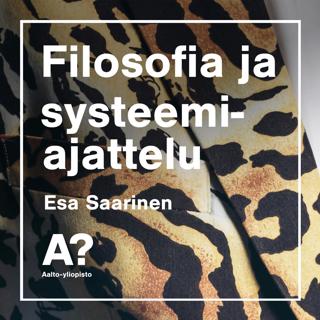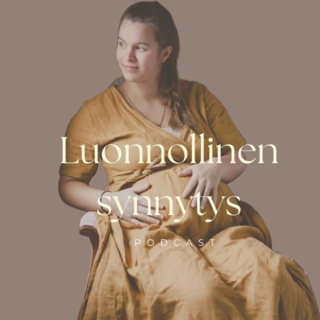
MUST HAVE BEEN and SHOULD HAVE BEEN
Improve your English today at ANGLOPOD.COM. Hi everyone, I’m Dan and today we’re going to focus on using the modal verbs MUST, SHOULD and OUGHT TO with the present perfect. We use them together to talk about something we thought would happen but didn’t.This will be easier to understand if we look at an example together. If you’re waiting for someone, but they still haven’t arrived, you might feel worried or even angry. If they don’t have a long way to travel or they started their journey to meet you a long time ago, you could say “He SHOULD HAVE arrived by now!” You might feel frustrated or concerned. “He SHOULD HAVE arrived by now!”Notice that after the modal verb SHOULD we use HAVE without ‘to’. So don’t say “He SHOULD to HAVE arrived”. That’s wrong. So, “He SHOULD HAVE arrived”. It’s also important to note the pronunciation here. HAVE is a grammar word, so the pronunciation is weak. So really we say “He SHOULD’VE arrived”, “He SHOULD’VE”.You could also use OUGHT TO as it means the same thing. “He OUGHT TO HAVE arrived”. This is less common but you will hear people use it. If you are sure this thing has happened, you can say “He MUST HAVE arrived” or “He MUST’VE arrived”. So you are sure that this has now happened.So, remember. When you use the present perfect after these modal verbs to talk about something you think has happened by now, don’t use ‘to’. “He SHOULD’VE arrived by now”. OK, now go to ANGLOPOD.COM to learn more English online. You SHOULD’VE done this by now! See you soon!Learn more: https://www.anglopod.com
16 Huhti 2min

Modal verbs
Improve your English today at ANGLOPOD.COM. Hi everyone, I’m Dan and today we’re going to learn how to use modal verbs with the bare infinitive in English. This means we’re going to focus on how we use modal verbs followed by another verb in a sentence.Firstly, what is a modal verb? Well, it is a type of auxiliary verb, a helping verb, which expresses some form of modality, such as ability, permission or possibility. For example, we can use the modal verb CAN to express ability: “I CAN play the piano”. I am able to do this, I have the skill or knowledge to do this. But we can also use CAN for permission: “CAN I go to the bathroom?” (although this is a more informal use of CAN here. Some people prefer to use the more formal modal verb MAY).However, when using modal verbs it is very important to remember that after the modal verb we don’t use the full infinitive (which just means the ‘to’ infinitive of the verb). So we say “I CAN play the piano” not “I CAN to play the piano”. This confuses many students because this rule does not exist in many other languages.Let’s see an example with a different modal verb. “You MUST do your homework”, not “You MUST to do your homework”. The modal verb MUST here is used to express obligation. Another example. “I MIGHT come to the party”, not “I MIGHT to come to the party”. The modal verb MIGHT here is being used to express possibility.So, remember that the main verb that follows a modal verb in English should be the ‘bare infinitive’, so no ‘to’. OK, now go to ANGLOPOD.COM to learn more English online. You MUST DO this! You MUSTN’T FORGET! See you soon!Learn more: https://www.anglopod.com
9 Huhti 3min

HAVE something DONE
Improve your English today at ANGLOPOD.COM. Hi everyone, I’m Dan and today we’re going to focus on the expression HAVE something DONE in English. This is a very common expression but it is often confusing for English students. It has a passive meaning and it means that someone does something for us, either because we can’t do it or we don’t know how to do it. Let’s find out more…Let’s start with a simple example to see what I mean. If I have a new haircut, my students often say to me: “You cut your hair!” But I have to say no, because this sentence is wrong in English. It doesn’t make much sense really!Firstly, I don’t know how to cut hair. I have never learnt how to cut hair, I’m not a barber or a hairdresser, right? I’m an English teacher! Secondly, have you ever tried to cut your own hair? I think it’s very difficult, right? I don’t think the result would be good!So the correct sentence is “I HAD my hair CUT”. “I HAD my hair CUT”. This means another person did it for me. So you say TO HAVE something DONE. You can use it for anything that another person does for you, because it’s difficult for you to do, you don’t want to do it, or you don’t have the necessary skills to do it.Here are some more examples. I HAD my car FIXED. I don’t know how to fix cars myself. I HAD my house PAINTED. It’s a difficult job and I don’t want to do it myself. And every month, I HAVE my hair CUT, because I can’t do it myself!There is another way you could say this. You could say GET something DONE. It means exactly the same thing. So I GOT my car FIXED, I GOT my house PAINTED, and every month, I GET my hair CUT.So what do you HAVE DONE? Go to ANGLOPOD.COM and tell us in the comments. Unfortunately, learning English is something you can’t HAVE DONE, right? You have to do it yourself! See you soon!Learn more: https://www.anglopod.com
2 Huhti 3min

Active and passive
Improve your English today at ANGLOPOD.COM. Hi everyone, I’m Dan and today we’re going to look at active and passive voice in English. This is a very important grammatical structure in English. We use it for different reasons, such as changing the focus of the sentence. Let’s look at some examples…Here’s a simple example: “The cat ATE the mouse”, active, “The mouse WAS EATEN by the cat”, passive. The passive form is really useful if we want to change the focus of the sentence. In this case, we want to focus on the mouse and not the cat.So how do we make the passive? It’s quite easy. Just use the auxiliary verb ‘to be’ and add the past participle form of the main verb. What’s the past participle? In this case, the present is EAT, the past is ATE, and the past participle is EATEN. EAT, ATE, EATEN. “The cat ATE the mouse”, “The mouse WAS EATEN (by the cat)”.There are different reasons why we use the passive voice in English. Sometimes we don’t know who did the action, like in a crime. So we could say “My car WAS STOLEN”. We don’t know who stole my car, so passive is really useful here. Note that it’s not necessary to say “My car WAS STOLEN (by a thief)”. That’s obvious, right? This is another reason why passive voice is so useful in English. Here’s another good example. “English IS SPOKEN all around the world”. This is good for talking about people in general. It sounds much better than “People speak English all around the world”. Again, obviously we’re talking about people. You might also see a sign in a hotel or a shop that says: “English IS SPOKEN here”. It sounds more formal than saying “We speak English here” or “Everyone speaks English here”. So passive can be more formal or less direct as well.OK, that’s a very brief overview of active and passive in English. It’s good to keep it simple. Can you think of any good examples using the passive voice in a natural way? Go to ANGLOPOD.COM and write them in the comments. See you soon!Learn more: https://www.anglopod.com
26 Maalis 3min

Linking verbs
Improve your English today at ANGLOPOD.COM. Hi everyone, I’m Dan and today we’re going to learn about linking verbs and how we use them in a sentence. These verbs do not describe an action. They are used to describe a state, a feeling or a result. Let’s look at some examples…The most common example of a linking verb is BE. For example, I AM a teacher, you ARE a student. In these examples, the verb BE is used to describe a state, not an action, and it is followed in both examples with a noun, not an adverb. In the examples here, ‘a teacher’ and ‘a student’.It’s also very common to use linking verbs with the senses, so you can say that some food TASTES GOOD or some music SOUNDS GOOD. Even though they are verbs, you are not describing an action, so you would not say TASTES or SOUNDS WELL. So, “this food TASTES GREAT” or “that music SOUNDS AMAZING”. Linking verb plus adjective, in these two examples, ‘great’ and ‘amazing’.Here are the five linking verbs for describing the senses: FEEL, LOOK, SMELL, SOUND and TASTE. For example, “You LOOK SAD” or “I FEEL SICK”.Here are some of the most common linking verbs to describe states of being: BECOME, APPEAR, SEEM, GET, REMAIN and GROW. For example, “This IS BECOMING A PROBLEM” or “Things are GETTING BETTER”.So go to ANGLOPOD.COM and practise using these linking verbs in the comments. Describe a state, feeling or result with these verbs. It LOOKS EASY, right? Show us that your English IS GETTING BETTER! See you soon!Learn more: https://www.anglopod.com
19 Maalis 3min

Reflexive verbs
Improve your English today at ANGLOPOD.COM. Hi everyone, I’m Dan and today we’re going to look at reflexive verbs in English. What is a reflexive verb? This is a verb where the action has an effect on the person doing it. Let’s see some examples together…One of the most common reflexive verbs is ENJOY. You can ENJOY SOMETHING, for example, you can ENJOY A PARTY or ENJOY A MOVIE, but you can also ENJOY YOURSELF, which makes it a reflexive verb. The verb ENJOY describes the effect on you. You can ENJOY A PARTY or ENJOY YOURSELF AT A PARTY. The second example is reflexive, because this is the effect the experience has on you.Another good example is TEACH. Someone can TEACH you English or you can TEACH YOURSELF English, if you do this on your own, to yourself, so the second example is reflexive. Someone can TEACH you English, or you can TEACH YOURSELF English.However, reflexive verbs are not as common in English as some other languages, so for example, we don’t say I DRESSED MYSELF today, or I WASHED MYSELF today. That would sound strange. It is more natural to say I GOT DRESSED or I HAD A WASH.Some other common reflexive verbs in English are INTRODUCE YOURSELF, HELP YOURSELF, AMUSE YOURSELF, CONVINCE YOURSELF, BLAME YOURSELF, HURT YOURSELF, PREPARE YOURSELF, DRIVE YOURSELF and BEHAVE YOURSELF.So, when did you last ENJOY YOURSELF? Have you ever TAUGHT YOURSELF something? Did you TEACH YOURSELF English? Go to ANGLOPOD.COM and tell us in the comments. See you soon!Learn more: https://www.anglopod.com
12 Maalis 2min

I CAN'T AFFORD it
Improve your English today at ANGLOPOD.COM. Hi everyone, I’m Dan and today we’re going to talk about the verb AFFORD and how we should use it. We normally use this verb to talk about money and how much money we have, although it can be used to refer to other things as well, such as time.The reason we’re going to focus on AFFORD is because it has a particular verb pattern so we can use it correctly. Let’s look at an example to see what we mean. You could say: I CAN’T AFFORD to go out tonight, I CAN’T AFFORD to go out tonight. In this example, we’re expressing an ability (or lack of ability, in this case) to do something because of cost. This suggests that I don’t have enough money, so I am not able to do this thing, go out tonight.So to use the verb AFFORD, we have to use the modal verb CAN before it. The verb AFFORD doesn’t make sense on its own. You can’t say: I afford it. You have to say: I CAN AFFORD it, or I CAN’T AFFORD it.Here are some more examples: I CAN AFFORD to travel by bus, but I CAN’T AFFORD to travel by taxi. I CAN AFFORD to buy a sandwich, but I CAN’T AFFORD to buy a meal. I CAN AFFORD to live in a flat, but I CAN’T AFFORD to live in a house.So remember, don’t use AFFORD on its own. It won’t make sense. Use it with CAN. That was a simple lesson. Now go to ANGLOPOD.COM and try the quiz. Then write your own example sentences in the comments. Good luck and see you in the next class!Learn more: https://www.anglopod.com
5 Maalis 3min

I WISH I KNEW and I WISH I HAD KNOWN
Improve your English today at ANGLOPOD.COM. Hi everyone, I’m Dan and in the last lesson we talked about using the verb WISH to talk about unreal situations in the present. Things that we would like to change now, but we can’t. In this lesson, we’re going to look at the difference between a wish in the present and a wish in the past. What’s the difference? How does the sentence change?Let’s use the example I WISH I KNEW from the verb TO KNOW. So as you remember from the last lesson, to make a wish about the present, we need to use the verb in the past, because this is not a real situation. It’s what we call a hypothetical situation, which means unreal. We are imagining this situation. I WISH I KNEW. For example, I WISH I KNEW the answer, I WISH I KNEW the answer. This means I don’t know the answer now, but I really want to know now! Maybe I’m doing an exam and it’s very hard, so I think to myself I WISH I KNEW the answer! Unfortunately I don’t, and I can’t change this situation, because I’m doing the exam now and I can’t check!Now, imagine the exam is now finished and I’m worried that I did very badly. I think I probably failed the exam because I didn’t know the answer during the exam. I’m now making a wish about the past. So if we use the verb in the past to talk about a present wish, we use the verb in the past perfect to talk about a past wish, like this: I WISH I HAD KNOWN the answer, I WISH I HAD KNOWN the answer. This is now a wish about the past and the past is finished so there is nothing we can do to change the past (unless you have a time machine!) so I say to myself: I WISH I HAD KNOWN the answer. That’s WISH followed by the past perfect, in this case HAD KNOWN.So, I WISH I KNEW the answer (a wish about the present) and I WISH I HAD KNOWN the answer (a wish about the past). And just a quick point about pronunciation. To make it quicker and easier to pronounce, we often say: I WISH I’D KNOWN, I WISH I’D KNOWN, so HAD is a weak sound.I hope that’s clear. It’s really important to practise this to help you understand better, so go to ANGLOPOD.COM and try the quiz. Then write your own example sentences in the comments. Good luck and see you in the next class!Learn more: https://www.anglopod.com
26 Helmi 4min






















